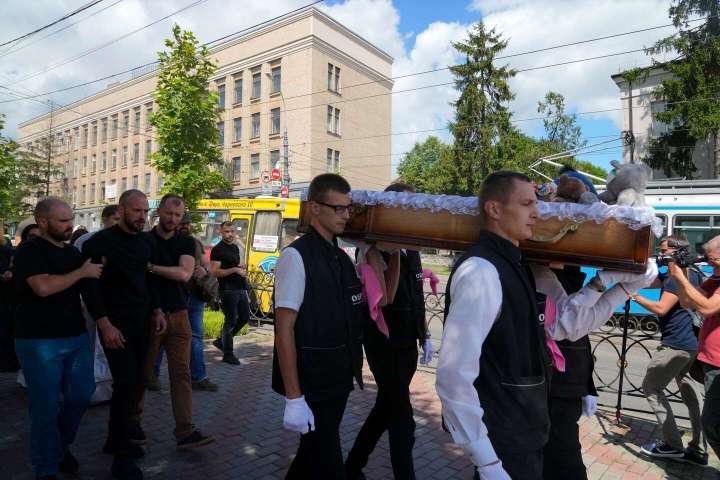The military “operational pause” Russia declared upon completing its conquest of Ukraine’s eastern Luhansk province has ended, less than two weeks after it began. Confirmation of this development came in two forms. On Saturday, Russian Defense Minister Sergei Shoigu issued an order to his forces, commanding them to resume attacks, presumably for the purpose of seizing the last Ukrainian-controlled portion of the Donbas region, consisting of about half of Donetsk province. And before Mr. Shoigu’s order went public, stepped-up Russian missile, artillery and air attacks had started again, claiming the lives of large numbers of Ukrainian civilians, including children.
War resumes in Ukraine and so does Russian atrocity

The most horrific Russian strike occurred when three cruise missiles fired from a submarine in the Black Sea struck the city of Vinnytsia last Thursday, killing at least 23 people, including a 4-year-old girl with Down syndrome who was pushing a stroller. The weapons hit a wedding hall, a shopping mall and a neurological clinic, but Russia, cynically, claimed the target was a Ukrainian officers’ club where military officials were talking with foreign arms suppliers.
On Monday, Russian missiles hit civilian areas in Toretsk, killing at least six more civilians. The United Nations published that day its latest estimate confirming 5,110 civilian deaths and 6,752 injuries in Ukraine since Russia invaded on Feb. 24, with the majority of the carnage caused by explosive weapons with a wide impact area, including shelling from heavy artillery and multiple launch rocket systems, as well as missiles and airstrikes, CNBC reported. The United Nations acknowledged that its casualty figures underestimate the true toll.
The implications are clear: Indiscriminate bombardment of areas where civilian noncombatants are known to be present is a war crime, and the Russians have therefore committed such offenses on a large scale. Ukrainian officials describe the latest attacks on towns in Donbas as deliberate attempts to terrorize Ukraine into submission, and, on the available evidence, it’s hard to disagree. Certainly, Russia’s tactics are consistent with those of its recent wars in Chechnya and Syria.
It is important to be reminded of those realities as the war grinds on, and the discussion of its impact increasingly shifts from the human to the strategic and geopolitical. To be sure, possibilities for a negotiated cease-fire, spillover effects on the domestic politics of European countries and even the apparent infiltration of Ukraine’s government by Russian agents, necessitating a crackdown by President Volodymyr Zelensky, are all important subjects. Yet as the momentary lull in combat occasioned by Russia’s operational pause gives way to renewed fighting, suffering and bloodshed, overwhelmingly borne by Ukraine’s people, will once again grow. There can be no just conclusion to this war that does not take into account President Vladimir Putin’s ultimate responsibility for it or the need to hold him accountable for it.






